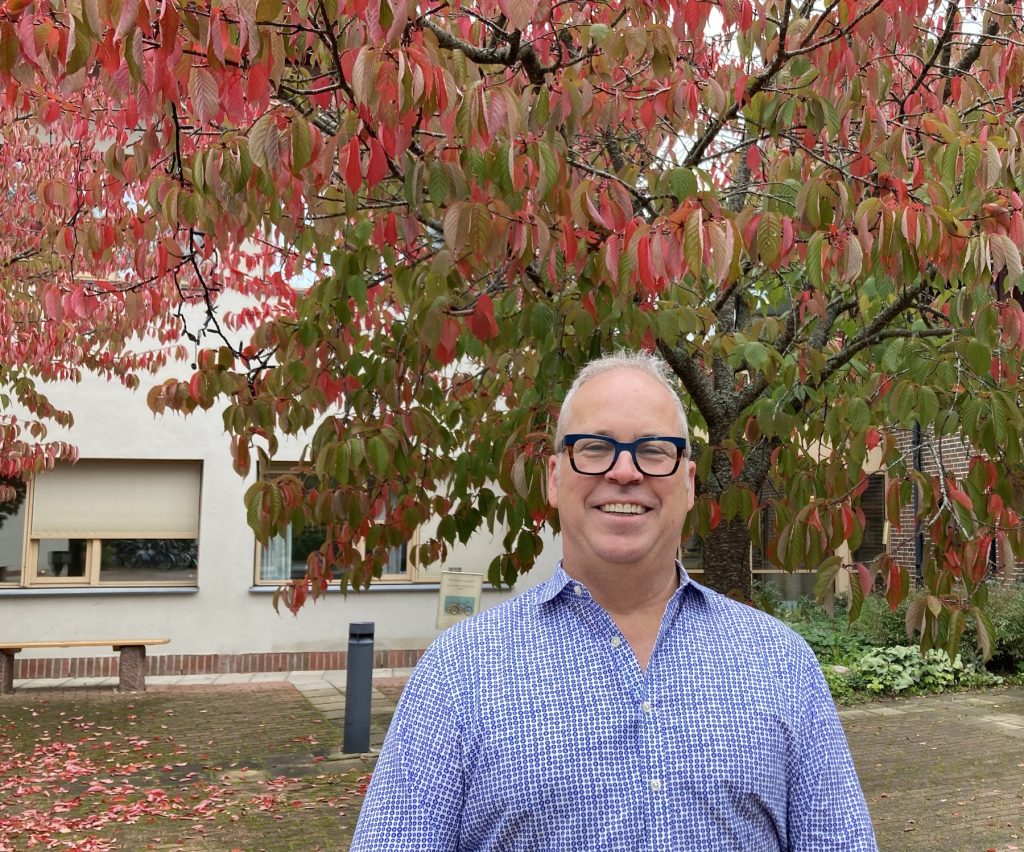Stacy VanDeveer is Uppsala university’s sixth Zennström visiting professor in climate change leadership. Stacy VanDeveer is a professor and chair of the Department of Conflict Resolution, Human Security & Global Governance at the McCormack Graduate School of Policy and Global Studies at University of Massachusetts Boston, interim director for the Centre for Governance & Sustainability at UMass Boston. He works 50% at the Department of Earth Sciences, Uppsala University within the unit for Climate Change Leadership from September 2023 to August 2024.

Picture credit: Judith Lundberg-Felten
Stacy, how would you define climate change leadership and what is its role on a local versus global level?
“Climate leadership is needed and it can happen is our homes, neighborhoods and local communities, to our employers, national governments or global organizations. Anyone of us can try to act on climate and lead on climate within any group or organization to which we belong. For me, climate leadership is about addressing problems in our lives and communities while, at the same time, reducing emissions of pollution and making our communities more resilient and sustainable.”
What are your goals with this guest-professorship in climate change leadership?
“I want to add to and learn from the tremendous amount of expertise in Uppsala and Sweden and better connect my work on US, European and global climate change politics, policy and leadership to Sweden. As recent events around the globe demonstrate each time we read the news, climate change is accelerating and growing more dangerous and more harmful. Our policies, and our local and national political leaders, must push forward to accelerate our commitments and meaningful actions too. To date, our actions have been too slow, too few and too modest.”
You have studied Environmental Governance in the EU and co-authored a book on this subject. What or which areas are you specifically interested in when it comes to the implementation of EU policies in Sweden?
“I am interested both in Sweden’s important role in making and improving EU environmental and energy policies, as well as in Sweden’s acceptance and implementation of European policies. If Sweden joins the ranks of the member states who want to go slower and follow others, rather than lead, European and global climate change action is likely to slow – or fail – as well.”
Given your interest in global resource and energy politics, what can the EU learn from other parts of the world?
“Every society and every government around the world must get much better, quickly, at learning from other countries’ climate change and energy policy successes and failures. I hope that helping this process is a key function of our universities. We must accelerate energy transitions and de-carbonization, even as we seek to use all resources much more efficiently, including water, mined minerals, food and agricultural systems, forestry and land. Just as importantly, climate and resource policies must advance economic and social justice and opportunity gaps. No country or region has a monopoly on leadership or policy innovation.”
Are you hopeful when you look into the future in the light of climate change? If so, what makes you keep a positive view?
“We know that climate changes are going to have increasingly negative effects on our lives, because we have been far too slow to act in meaningful ways. What makes me hopeful is the passion, anger and impatience of young climate activists and innovative local communities and organizations. They are right to demand much stronger action – real action – from powerful government and private sector organizations.”
How do we best reach out with research to engage people and politicians?
“For me, four of the most important strategies are these: (1) researchers must listen and learn at least as much as they seek to “teach” or “inform” others, (2) researchers must seek to connect climate change and sustainability to other important challenges, goals and values in people’s lives, (3) researchers must be honest and frank in evaluations about what is working and what is not, regarding climate, energy and sustainability policies and greater justice and equal opportunities in peoples’ lives, and (4) researchers must build trust and offer useful and relevant information in their relationships with communities, organizations and political leaders.”
Which connections would you like to establish in Sweden and how can people best reach you?
“I would like to help build and expand sustainable relationships between US and Swedish researchers, students and policy innovators. I want to play at least a small role in accelerating shared learning and policy making and implementation to meet the growing challenges we all face from climate change and our over-consumption of many resources.”
